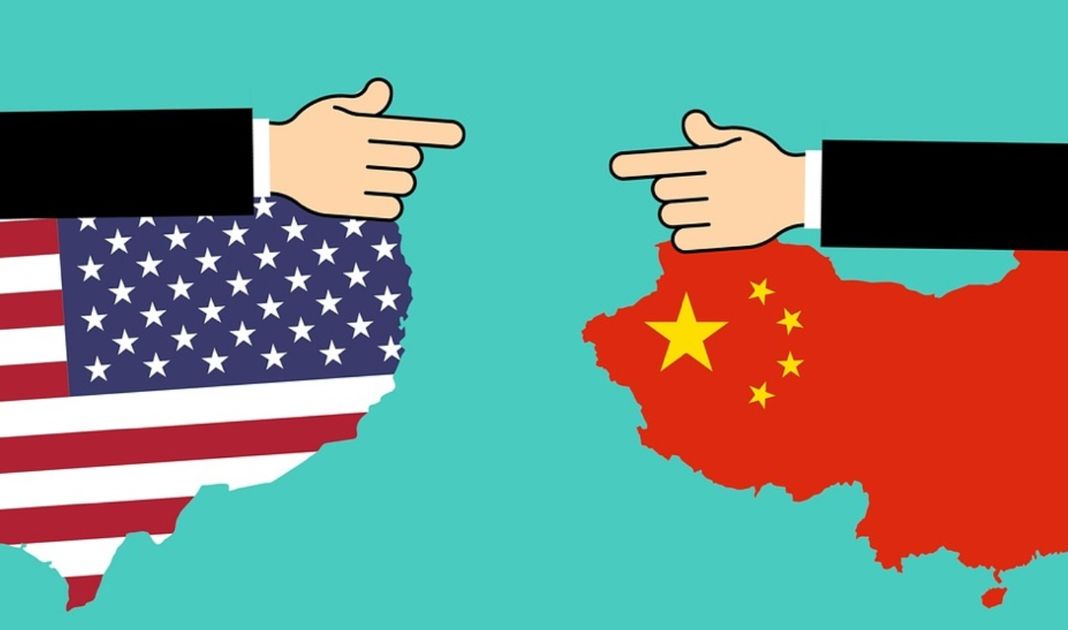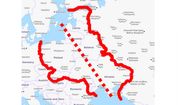The painful reality of strategic flows, and a history lesson

(pixabay.com)
To paraphrase the words from the famous “Dune” (a classic science-fiction book by Frank Herbert), one can say that for the system to work without interference, “goods must flow”.
We are not the first to learn this lesson, hard way. The Americans were convinced of the importance of strategic flows at the beginning of the 19th century. Less than forty years after the declaration of independence, the War of 1812 broke out. At that time, Americans who believed too much in freedom of movement almost paid for their faith by losing the war.
Freedom of movement is not given once and forever
The war of 1812 was a conflict between the United States of America and Great Britain, taking place during the period 1812-1814, alas Napoleonic wars. This conflict taught the young American state that it must have its own strong production base on site and that it cannot rely on importing critical goods from overseas.
The causes of the conflict were multiple, but nevertheless three basic points are to be noted.
First, England blocked American trade with the Napoleonic land empire. This not only affected the financial interests of the Americans, but also their sense of dignity. Through the blockade, England decided who was allowed and who was forbidden to trade with the United States, as if they were still a colony. Secondly, the Royal Navy, which suffered from staff shortages, practised the press ganging of seafarers from American ships, claiming that the seafarers were not US citizens but English deserters hiding from military service.
Thirdly, there was a psychological motivation. In Congress until the war there was a so-called wing of “War Hawks” (a name used in American politics to this day). Belonging to this wing was a young Henry Clay, who in later years would become one of the titans of political life in the USA. The War Hawks pointed out that the last generations to remember the War of Independence, which had served as a binder of national unity, were leaving the stage.
Already in 1810, Clay was warning Congress that the last heroes of the War of Independence would soon die, and that their “deeds of glory and renown [would] then be felt only through the cold medium of the historic page.” “We shall want the presence and living example of a new race of heroes to supply their place,” Clay explained.
At that time, the US federal government was headed by the James Madison administration, which strictly followed the principles of limited government outlined by Thomas Jefferson. The problem was that in such conditions it was impossible to wage war. Naval Secretary William Jones complained that: “The president is virtuous, able and patriotic, but […] he finds difficulty in accommodating to the crisis some of those political axioms which he has so long indulged, because they have their foundations in virtue, but from which the vicious nature of the times and the absolute necessity of the case require some relaxation.”
Theodore Roosevelt – later American president and author of a study of the maritime aspects of the War of 1812 – was less careful in the choice of words and wrote about the “criminal folly” of “Jefferson, and his follower Madison.”
The problem was not only that the Americans did not have a proper army and navy. They also lacked an appropriate industrial base. The Americans relied too much on infrastructure for the flow of goods across the Atlantic. They decided that what they could not produce by themselves could be sourced overseas. Thomas Jefferson stated in a letter to French economist Jean Baptise Say that America would feed Europe with its agricultural products and Europe “in return would manufacture and send us in exchange our clothes & other comforts.” After the war, Jefferson honestly admitted that at the time he was of the view that there was nothing wrong with maintaining the US’s dependence on England in industrial production.
Reality revised this idealism. Andrew Jackson – during the War of 1812 a leading military officer and then another president – in a correspondence from 1824 complained that due to the lack of proper production he had lost too many soldiers who did not have uniforms or access to medicines appropriate for the climate.
He pointed out that England – as a naval power “who wield the power of the Deep” – had cut off Americans from access to important defence goods.
In fact, Great Britain had carried out a US sea blockade and (using a small expeditionary corps) a land invasion. Washington was plundered and even the presidential residence burned down (legend has it that since then it has been called the “White House” because an attempt was made to smother the flames with white paint). The only thing that saved the Americans from defeat was the fact that – as I have written previously in Strategy&Future – England had waged the war without sufficient resolve, and the whole thing ended with a peace treaty restoring the status quo ante.
However, President Madison had drawn the appropriate conclusions. Restrictions imposed on American trade before and during the war resulted in an increase in native industry in the United States. After signing the peace and the return of communication lines, cheap English goods flooded the US market again. This time Washington did not yield – in an annual speech to Congress, President Madison announced the introduction of protection duties to protect the US production base.
Madison refused to allow the US to become addicted to overseas deliveries again. In a speech to Congress on February 18, 1815, President Madison called for the establishment of customs duties to protect the industrial base, this “source of national independence and wealth.” Similarly, in a speech on December 5 of the same year, Madison pointed out that special protection from Congress was due to those industries “such as will relieve the United States from a dependence on foreign supplies […] for articles necessary for public defence or connected with the primary wants of individuals.” Such sentiment led to emergence of the so-called Madison Platform, which constituted, among other things, a federal government support program for industry to build an independent production base that is free from the danger of interruption of overseas supply.
It was this industrial base that was one of the factors that gave victory to the Northern states over the Southern states in the American Civil War. The South, which had long been hostile to industry, assumed that it would be able to exchange its goods (sugar, cotton) for the necessary industrial goods. An end to this fantasy came with the blockade of the ports of the South by the Union Navy. Suffice to say that the innovations of the Civil War era intended to break this blockade included the battleship (a ship covered with iron armour) and the submarine (the famous Huntley).
The Return of History
So, as we can see, history teaches that the intersection of strategic flow lines affects the fate of entire political communities, changing their approach to reality. Some are given a second chance and the opportunity to draw conclusions, while others (such as the Confederates) are not.
In this context, it is worth asking whether (as in the nineteenth-century United States) a production base would be created in Europe (including Poland) and the United States during the restrictions on international trade, replacing the missing production from Asia. If so, will this base be maintained after restrictions have been lifted?
Let’s look at the American administration’s rhetoric. One of the leitmotifs of Donald Trump’s presidential campaign and his administration was to bring production back to the United States, including from China. At the same time, Trump’s motivation was of an economic nature: globalisation and offshoring to China had deprived America of well-paid jobs, influenced the escape of innovative production, etc.
Not so long ago, in his State of the Union Address (February 4, 2020), President Trump thundered on the theme of introducing duties to combat “the theft of American jobs” by the Chinese. Security in these considerations appeared rather in the context that a strong economy was to provide the basis for a strong US army.
How different this sounds to the recent remarks of chief economic adviser to the US president, Professor Peter Navarro, who – in the context of coronavirus’s impact on supply lines – said of the American production chain: “a lot of it is in China, some of it is in India, some in Europe but we’ve got to get that back on shore.”
Each side has been moving for some time towards breaking the interdependence that the famous economist historian Niall Fergusson called “Chinamerica” - the Chinese produce and the Americans buy. So the point is that, at least in this aspect, the coronavirus pandemic is part of current trends – pushing us towards a progressive revision of the global order, also in the economic aspect. This will be another argument for those who are in favour of permanently bringing production closer to sales markets in Europe or the United States. In addition to various motives – protectionist (creating jobs “on the spot” for their own citizens), imperial (the strength of the local economy guarantees power in international relations) or ecological (moving production to developed countries allows better implementation of clean production methods and controlling their use) – there will be another, and the most basic, straight from the nineteenth century playbook – motivation dictated by security.
Autor
Kuba Gąsiorowski
Holds Ph.D. in law, an expert in the field of the history of American political and legal thought, author of "The American Project". Alumnus of the Fulbright Scholarship in Washington D.C. His articles were published by the Jagiellonian Club, New Confederation and Rzeczpospolita Daily. He is an attorney working in international trade. Short-listed for the "Rising Stars 2019" Award by "Legal Newspaper Daily" and Wolters Kluwer publishing house.






Trwa ładowanie...